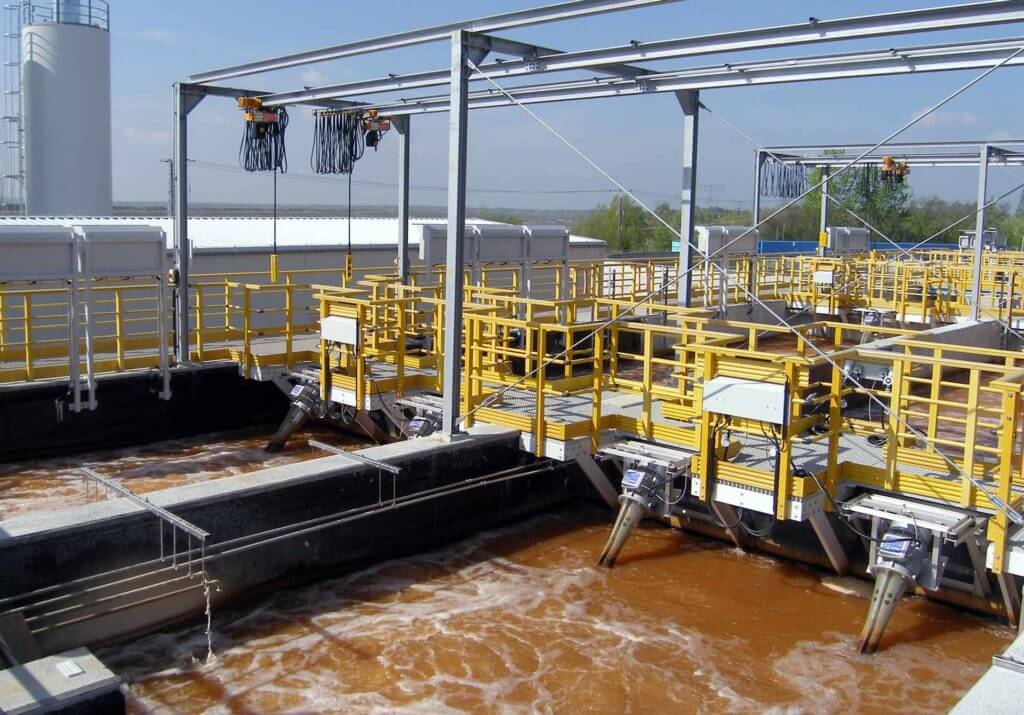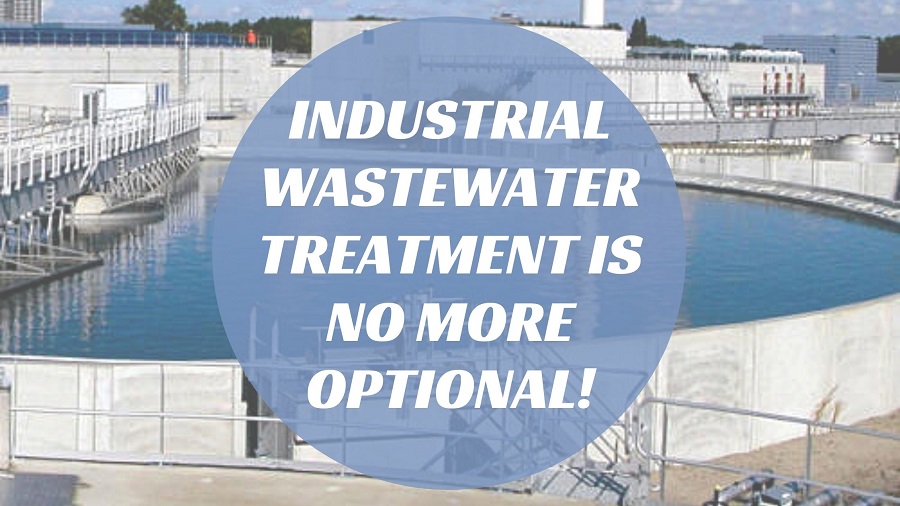Challenges and Solutions in Industrial Waste Water Treatment
The therapy of commercial wastewater offers a diverse variety of challenges, varying from rigid governing compliance to the intricacies of expense management and technological restrictions. The irregularity in waste composition better makes complex the effectiveness of standard therapy approaches, typically leading to intensified operational expenses. However, arising services such as innovative oxidation procedures and ingenious funding designs reveal pledge in resolving these issues. As sectors grapple with the demand for lasting methods, the question remains: what techniques will eventually bring about an equilibrium between conformity, cost-efficiency, and environmental obligation?
Regulatory Compliance Difficulties
How can commercial centers navigate the complicated landscape of regulatory conformity in wastewater therapy? The regulative framework governing wastewater management is multifaceted, typically differing by territory and kind of sector.
To effectively handle these compliance obstacles, facilities must carry out robust tracking and reporting systems that guarantee real-time information collection and analysis. Regular audits and danger evaluations can recognize prospective compliance gaps, permitting aggressive adjustments in treatment processes. Staff member training programs concentrating on regulative knowledge and finest methods are necessary to foster a society of conformity within the company.
Furthermore, involving with regulatory companies can give beneficial insights and make clear uncertain policies. Facilities might likewise benefit from seeking advice from with ecological experts that focus on wastewater therapy conformity, guaranteeing that they stay informed of advancing guidelines. By taking on these approaches, commercial centers can not only fulfill compliance requirements yet also improve their functional efficiency and ecological stewardship.
Cost and Financial Obstacles
Navigating governing compliance in wastewater therapy usually provides substantial monetary challenges for industrial centers. The costs related to implementing necessary treatment technologies, preserving conformity with stringent regulations, and taking care of functional expenses can be daunting. Lots of companies deal with high first capital expenses for the construction or updating of wastewater therapy plants, which might strain budget plans, particularly for little and medium-sized business.
In addition, recurring functional expenses, including labor, upkeep, and chemical inputs, add to the economic problem. The unpredictability of fluctuating energy prices and the potential need for extra financial investments to meet progressing policies worsen these financial stress. Oftentimes, the lack of financial incentives or assistance from federal government bodies makes it a lot more challenging for services to warrant investments in sophisticated treatment systems.
In addition, the financial stability of wastewater treatment remedies is frequently questioned, specifically for markets with tight earnings margins. It is important for industrial centers to discover cost-effective methods, such as adopting ingenious funding choices, involving in partnerships, and leveraging arising technologies that can assist minimize these economic obstacles while guaranteeing conformity with environmental requirements.

Technical Limitations
Many technological restrictions hinder the effectiveness of commercial wastewater treatment processes. One significant difficulty is the inadequacy of existing treatment modern technologies to attend to complex impurities.
Additionally, the scalability of therapy technologies presents a challenge. While some sophisticated methods, like membrane purification or advanced oxidation, show assurance in controlled atmospheres, their implementation on a larger range can be prohibitively costly and practically challenging. Upkeep and operational complexities better complicate the adoption of these systems, particularly for smaller sized industries with restricted technological know-how.
The assimilation of real-time monitoring innovations additionally continues to be insufficient in numerous therapy continue reading this centers. Without reliable tracking systems, operators can not properly evaluate treatment effectiveness or detect potential failings, leading to inconsistent effluent high quality. Resolving these technical constraints via study and growth, together with investment in cutting-edge remedies, is crucial for boosting the efficiency of commercial wastewater treatment and guaranteeing regulatory compliance.
Variability in Waste Composition
In the world of commercial wastewater treatment, the variability in waste make-up offers a powerful difficulty. Industries create wastewater with diverse characteristics, affected by variables such as production processes, basic materials, and functional methods. This diversification makes complex the treatment procedure, as standard systems typically have a hard time to effectively resolve the variety of contaminants present.
For circumstances, wastewater from food processing might consist of high levels of natural matter, while effluents from chemical production might include heavy steels and dangerous substances. This difference requires adaptable treatment strategies to make sure conformity with environmental laws and safeguard public health. Furthermore, fluctuations in waste structure can take place in time, affected by modifications in production routines, upkeep activities, or the intro of brand-new products.

Innovative Therapy Solutions
Innovative therapy solutions are necessary for dealing with the intricacies of commercial wastewater management. Standard methods commonly fall short in properly removing a vast array of pollutants, specifically in facilities with varied effluent streams. Current advancements concentrate on incorporating cutting-edge innovations to boost treatment performance and sustainability.
One promising method is making use of sophisticated oxidation processes (AOPs), which take advantage of powerful oxidants to weaken organic contaminants. AOPs, including photocatalysis and ozonation, can substantially reduce hazardous materials and improve effluent quality. Furthermore, membrane layer bioreactor (MBR) modern technology has acquired traction, incorporating biological treatment with membrane filtering, leading to high-grade effluent and reduced footprint.
Another innovative solution is the implementation of resource recovery systems. Techniques like anaerobic digestion not only treat wastewater but also produce biogas, which can be try this out utilized as an eco-friendly power try this resource. The fostering of man-made intelligence and machine learning versions can maximize treatment processes by predicting variants in wastewater composition, therefore boosting functional efficiency.
These innovative remedies not just address regulatory compliance yet likewise promote ecological sustainability, leading the method for a more efficient and resistant industrial ecological community.
Verdict
In conclusion, attending to the obstacles of industrial wastewater treatment needs a diverse strategy that integrates regulatory compliance, price management, and technological improvements. A dedication to continual improvement in treatment approaches will eventually contribute to the efficient administration of commercial wastewater and ecological defense.
The therapy of commercial wastewater offers a complex selection of challenges, varying from rigid governing conformity to the details of price monitoring and technical constraints. Industrial Waste Water Treatment.Browsing regulative compliance in wastewater treatment commonly offers substantial monetary difficulties for industrial facilities. Dealing with these technological limitations via study and development, along with financial investment in ingenious solutions, is crucial for enhancing the efficiency of industrial wastewater therapy and making sure regulatory compliance
Wastewater therapy facilities must invest in durable monitoring systems and versatile treatment technologies capable of suiting differing influent features.In final thought, attending to the challenges of commercial wastewater treatment requires a complex technique that integrates governing conformity, expense management, and technical improvements.